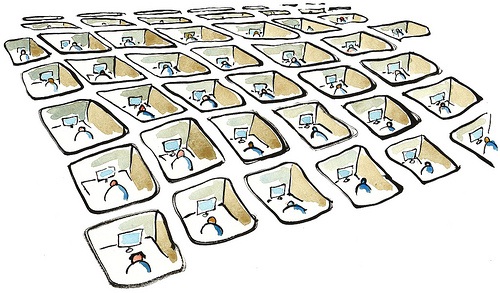
Crowding In On Publishers
 As if publishers did not have enough competition to worry about with Amazon and its growing number of imprints, the plethora of authors choosing to self-publish and the explosion of new apps to turn ebooks into a more interactive experience, they now have to contend with a new brand of competition: News organizations turning publishers.
As if publishers did not have enough competition to worry about with Amazon and its growing number of imprints, the plethora of authors choosing to self-publish and the explosion of new apps to turn ebooks into a more interactive experience, they now have to contend with a new brand of competition: News organizations turning publishers.
The proliferation of e-readers has helped magazine and newspaper publishers find new platforms for their work, and they are now leveraging these new platform by adding new products in the form of short ebooks related to hot topics.
The list is already long and still growing. The Huffington Post, The Guardian, the New Yorker, ABC News, The Boston Globe, Politico, Vanity Fair and many others are jumping in the ebook publishing bandwagon.
As opposed to publishers, these news organizations have an immediate access to a potential readership for their books. Their daily or weekly readers know who they are, are familiar with the News network style and are far more likely to trust a book by a known entity than a book by one of the mushrooming publishers that are vying for a slice of the publishing market.
Some publishers chose to team up with news organizations to produce e-books on a faster schedule, preferring to join them rather than to have to compete with them. For example, Random House, the world’s largest trade publisher, is partnering with Politico to produce a series of four e-books about the 2012 presidential race.
For most news organization, publishing a book basically means repackaging a series of already written articles pertaining to the topic they have chosen, add a prologue and an epilogue, format it and market it to their readers.
This means production costs are low, as they can use the work of reporters already on the ground rather than affect a project to a single writer for extended period of time, there are no printing cost and distribution is online. In addition, the production speed is lightning fast and they can immediately market the book to a captive audience of regular readers.
Typically, these books are a cross between an in-depth magazine article and a book and are typically short and sold for cheap.
These books might even climb to coveted spots on best-seller lists, The New York Times’ “Open Secrets,” climbed up the No. 19 spot on The Times e-book nonfiction best-seller list in February.
Of course, this growing competition is particularly worrying for publishers of non-fiction, less for the fiction market that has little to do with news. Yet, as these news generated publication grow in number, the sheer volume of existing e-books grows, further complicating the task of standing out in the crowd.